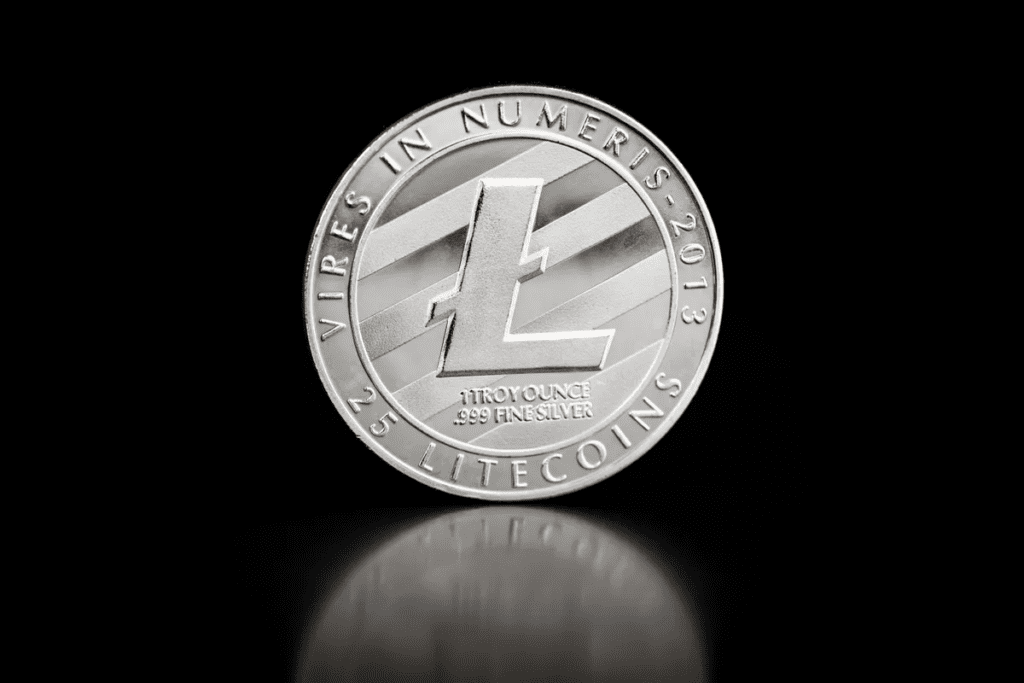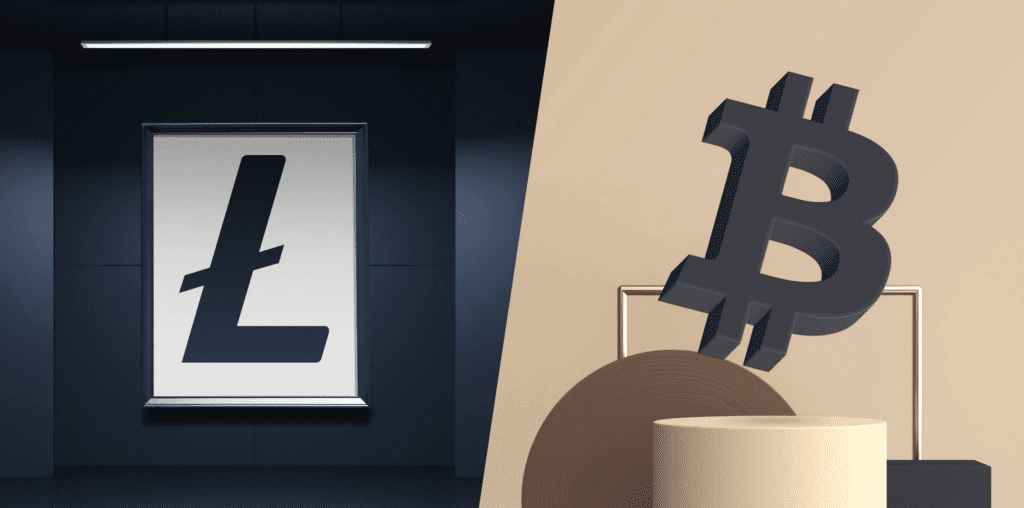Key Points:
- The recent introduction of the LTC-20 token standard seems to have revitalized the Litecoin ecosystem.
- The LTC-20 standard is a Litecoin token standard that lets developers construct tokens that can interact with the network and have built-in smart contracts. It is an outgrowth of the BRC-20 standard.
- LTC is one of the most popular cryptocurrencies due to its cheap transaction fees and rapid confirmation rate. As a result, analysts anticipating the coin is not surprising.
The Litecoin community has chosen to propose a test standard for LTC-20 and has created a test token to that end.

LTC-20 will become a reservoir for capital overflow, driven by the wealth-building impact of BRC-20 in the past and backed by the story of halving in the future. It is now possible to bet on multi-party market games with very high odds.
The standard is a fork of the BRC-20 standard, and the community characterizes it as simply a fun experimental standard proving that off-chain balancing states may be created using inscriptions. Let’s dive deeper into this topic with Coincu.
BRC-20’s new narrative
The Bitcoin market has expanded in recent months, giving rise to several misconceptions about becoming wealthy. The movement of wealth creation in the currency circle is simply the development of the token distribution mechanism, which is also the finest pipeline for generating encrypted affluent individuals in each cycle.
Finally, using the latest BRC-20, deploy, mint, and transmit Bitcoin inscriptions. It is a more decentralized and equitable form of token distribution.
Although the global crypto market has failed to keep up with macro changes, Litecoin has managed to send shockwaves across the industry with the introduction of its LTC-20 standard.
Many believe that the recent implementation of the LTC-20 standard – a substantial advance in the Litecoin ecosystem – is the driving force behind Litecoin’s fresh life. Some experts believe that this new update will continue to spread enthusiasm for Litecoin, while others do not.

What is LTC-20?
The standard is based on the Litecoin Ordinals Protocol and has an 84 million supply. The BRC-20 standard in question is the standard form for experimental fungible tokens created using Ordinals and inscriptions and kept on the Bitcoin base chain.
Litecoin is one of the market’s earliest cryptocurrencies and remains important. The goal is to determine if the flexibility is appropriate for the Litecoin blockchain. The test’s purpose is to deploy LTC-20 tokens, mint a certain number of tokens, and transfer some tokens.
According to the documentation for the LTC-20 experiment:
“This is just a fun experimental standard demonstrating that you can create off-chain balance states with inscriptions. It by no means should be considered THE standard for fungibility on litecoin with ordinals, as I believe there are almost certainly better design choices and optimization improvements to be made. Consequently, this is an extremely dynamic experiment, and I strongly discourage any financial decisions to be made on the basis of it’s design. I do, however, encourage the litecoin community to tinker with standard designs and optimizations until a general consensus on best practices is met (or to decide that this is a bad idea altogether!).”

LTC-20 generates interest in the Litecoin ecosystem
Following in the footsteps of the BRC-20 Ordinals, LTC-20 permits memes and NFTs to be connected to the Bitcoin base chain.
Importantly, the LTC-20 token standard has been widely adopted by the Litecoin community worldwide. Since May 1, the number of new wallet addresses produced on the Litecoin network has reached an all-time high.
Surprisingly, the first rise began with many individual investors establishing wallets for less than one LTC. On-chain data, however, reveals that crypto whales are now participating.
The following is an on-chain study of the current Litecoin rebound, as well as a data-driven estimate of how much LTC price upside is possible.
Importantly, hundreds of new users are joining the LTC-20 movement, resulting in unprecedented levels of Litecoin network activity. According to Santiment statistics, the number of daily active Litecoin addresses (DAA) surged by more than 200% in May. The DAA indicator counts the daily amount of transactions on the blockchain network made by unique wallet addresses.
Interestingly, the increase in the number of people participating in the network indicates that demand for the base currency is increasing. If Litecoin network members continue on this path, the current LTC rise might set new records.
Despite being late to the LTC-20 Ordinals party, Litecoin whales seem to be transacting more than they did in the first week of May 2023. In conclusion, a positive price forecast is likely if the LTC-20 wave continues its present velocity and whales continue to buy in.
What are the outstanding features of LTC-20?
The many xRC protocols that have sprung out like mushrooms in the market are a manifestation of FOMO, and consumers are eagerly seeking the next chance that will increase by a thousand times. And at the time, LTC-20 is the best option.
Litecoin generates a block every 2.5 minutes (Bitcoin every 10 minutes), allowing for faster transaction confirmation, and the Gas fee is extremely low (less than $0.1 per transaction, a few dollars to hundreds of dollars per transaction in Bitcoin), giving it more advantages in terms of block generation speed, flexibility, transaction costs, and so on.
In comparison to DRC-20: The dogecoin community’s DRC-20 protocol now lacks formal leadership, and the parties are fragmented and dispersed. Moreover, LTC-20 is a subscription market with legitimate organizations and platforms. Second, Dogecoin has a larger per-transaction gas price, around three times that of Litecoin.
In comparison to ORC-20, ORC-20 is an addition to the BRC-20 environment. The currency-issuing form is more flexible, tokens may be produced in addition, and the namespace is not restricted. ORC-20 is a Bitcoin equivalent of Ethereum ERC-20. It deviates from the fundamental disk of the inscription hype to some amount. One issue it raises is why, if Bitcoin is ERC-20ized, we don’t utilize Ethereum’s ERC-20 directly.
The growth of BRC-20 has been marketed as a counter-movement against centralization and big wealth whales. The idea is that regular investors will become serfs and sing while institutions, major forces, and exchanges accept everyone’s instructions.
There are just individual investors, and the market is like a pan of loose sand without the involvement of major funds.
The primary benefit of LTC-20 over other xRC protocols is that with the Litecoin halving event in August, market capital and flows will be centered on Litecoin. LTC-20 will become a reservoir for capital overflow after being propelled by the wealth creation impact of BRC-20 and then sustained by the halving story. There are greater chances for major businesses, institutions, and exchanges to join the industry.
The market value of LTC is around $6.41 billion, while the market value of BRC-20 is approximately $450 million. It simply takes a little money outflow from the market to the LTC-20 to generate hundreds or thousands of investment chances.
DISCLAIMER: The information on this website is provided as general market commentary and does not constitute investment advice. We encourage you to do your own research before investing.
Join us to keep track of news: https://linktr.ee/coincu
Harold
Coincu News














